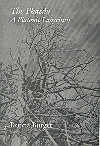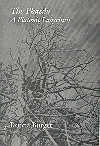The Phaedo: A Platonic Labyrinth
The Phaedo: A Platonic Labyrinth
Since antiquity the
Phaedo has been considered the source of "the twin pillars of Platonism" - the theory of ideas and the immortality of the soul. BurgerÔÇÖs attempt to trace the underlying argument of the work as a whole leads to a radical rethinking of the status of those doctrinesThe movement of that argument is marked by the structural division of the dialogue into two halves, linked and separated by a central interlude in which Socrates warns against the great danger of "misology," or loss of trust in logos. That danger, which threatens the very possibility of philosophic inquiry, comes to overshadow the threat posed by the fear of death, which motivated the original series of arguments. The turn this necessitates, from the first to the second half of the dialogue, brings about a transformation of the understanding of knowledge, the ideas, the soul, death, and immortality. With this "second sailing," as Socrates calls it, the "Platonism" presented in the
Phaedo emerges as precisely the target of which the dialogue is a critique."Burger has a wonderfully fertile mind and supports her imaginative thesis with a close reading, extremely sensitive
to nuance." - Jerome Schiller, The Journal of the History of Philosophy"This is a comprehensive study of the
Phaedo, thoroughly researched, and sparkling with insights into the text." - Paul Woodruff, University of TulsaCover photograph - 1999 by Geoffrey Fingerhut.
Author
Burger, Roger
Publisher
St Augustine's Press
Related Collections:
St Augustine's Press
Bookshelf:
7C
Couldn't load pickup availability
Share
ISBN/Code: 1890318582
View full details

